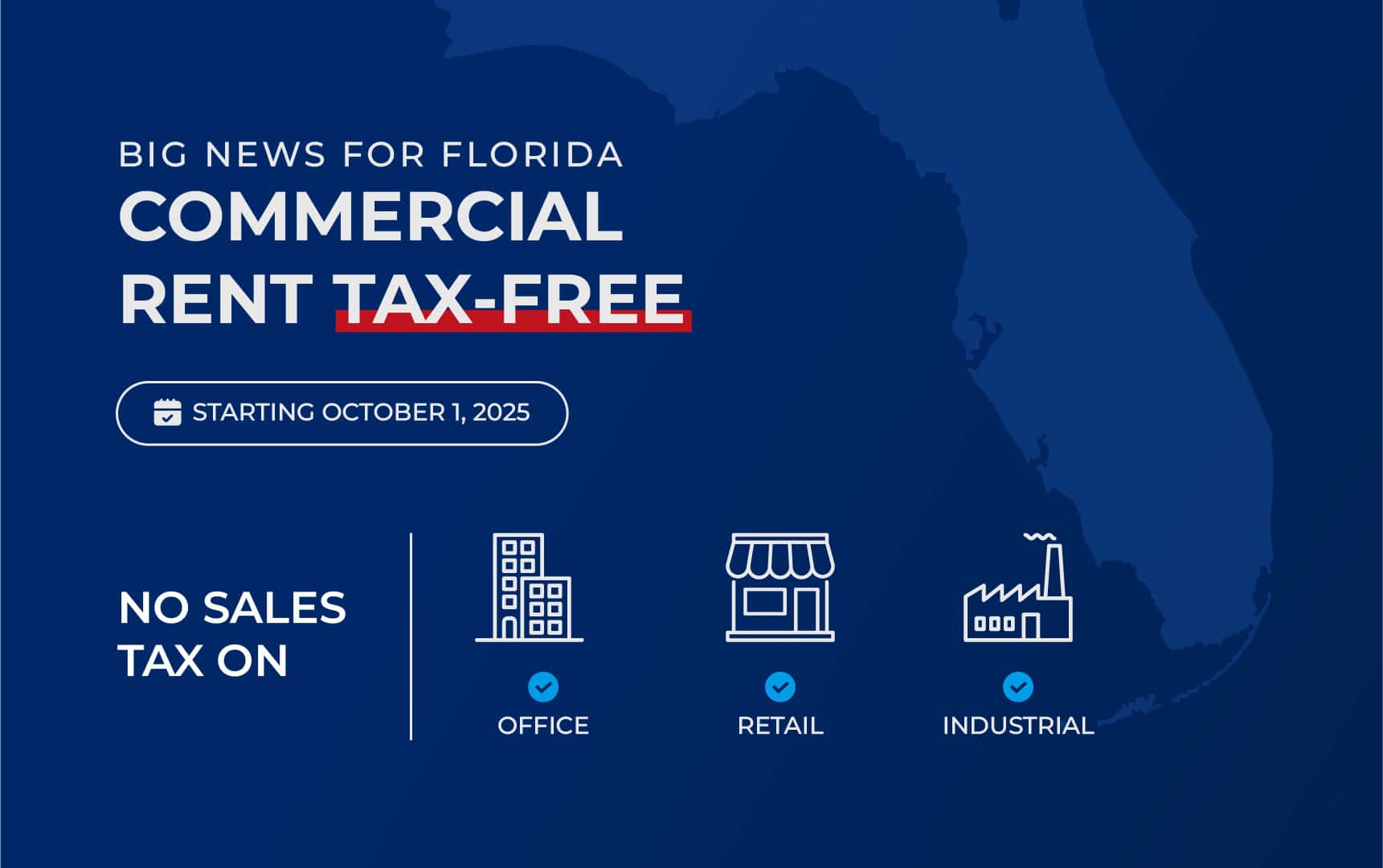Is Florida now the most competitive market for commercial real estate?
As of October 1, 2025, the answer may very well be yes. Florida has officially eliminated the sales tax on commercial leases. This means tenants renting office, retail, or industrial space will no longer pay state or local sales tax on their rent. It’s a landmark policy shift that positions Florida as one of the most business-friendly commercial real estate markets in the nation.
Why This Change Matters
For decades, Florida stood out as one of the few states to levy a tax on commercial rent. While the state steadily reduced the rate in recent years, the complete repeal represents a dramatic step forward in lowering the cost of doing business. The move is expected to increase competitiveness across the state’s retail, office, and industrial sectors, driving both tenant activity and investor interest.
Tenant Benefits: Lower Costs, More Flexibility
Tenants are the most immediate winners. Eliminating the sales tax on rent reduces occupancy costs—sometimes by thousands of dollars annually. These savings free up capital for hiring, expansion, and reinvestment in operations. Businesses entering long-term leases now have a unique opportunity to lock in favorable terms before increased demand puts upward pressure on base rents.
Landlord Benefits: Stronger Absorption, Pricing Power
For landlords, the repeal strengthens absorption as more tenants seek space in a more affordable market. This shift creates an environment where landlords can review asking rents, trim concessions, and improve tenant quality. Properties in competitive submarkets can now be positioned more aggressively, improving both leasing velocity and long-term asset value.
Investor Perspective: Florida Gains a Competitive Edge
Investors are watching this closely. By eliminating sales tax on leases, Florida becomes more attractive than higher-tax states, pulling capital into the market. Lower effective occupancy costs make underwriting more favorable, increasing confidence in retail developments, office investments, and industrial expansions. Combined with population growth and job creation, the state offers a compelling case for long-term returns.
Market Implications Beyond Dollars
This repeal isn’t just a financial adjustment—it’s a catalyst for broader shifts in Florida’s CRE landscape. Retail leasing activity is likely to accelerate as national tenants expand footprints. Office relocations from higher-cost states may increase, especially in metros like Orlando, Tampa, and Miami. Industrial demand—already strong—could see another boost as logistics firms capitalize on Florida’s infrastructure and growing consumer base.
Next Steps: How to Position Yourself
- Tenants: Evaluate your lease strategy now. Lower costs create opportunities to secure long-term space before rents adjust upward.
- Landlords: Review pricing models and competitive positioning. Rising demand gives leverage to reprice, restructure concessions, or attract higher-quality tenants.
- Investors: Revisit Florida assets in your pipeline. This change enhances returns and strengthens the state’s profile as a prime market for capital allocation.
Final Takeaway
By eliminating sales tax on commercial leases, Florida has reshaped its commercial real estate landscape. The move lowers barriers for tenants, strengthens landlord positioning, and provides a clear competitive edge for investors. It’s a shift that cements Florida’s reputation as one of the most attractive and business-friendly CRE markets in the United States.
Contact the professional team at Garito & Company today to discuss how this tax-free advantage can impact your retail and commercial real estate strategy.


